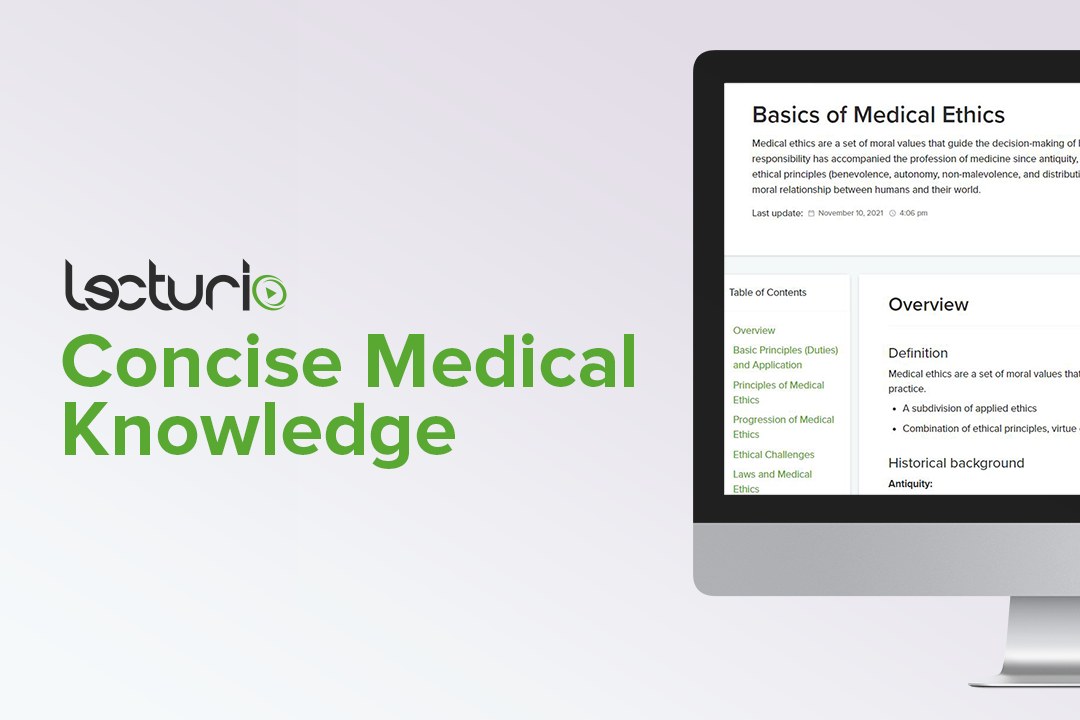Playlist
Show Playlist
Hide Playlist
Introduction to Ethical Principles
-
Slides Introduction to Ethical Principles.pdf
-
Reference List Clinical Ethics.pdf
-
Download Lecture Overview
00:00 The 2nd approach to medical ethics is going to be ethical principles. 00:07 Let's first go back to a little bit of core ethics or philosophy, think about 2 approaches to principalism. 00:15 First is something called deontology, which is duty-based ethics. 00:20 And this is the idea that the moral agent, you know, the person performing actions has rationality and they use their reasoning ability to figure out what to do, you know, how they're going to perform. 00:33 And that is based on fulfilling duties. 00:36 What are your obligations in a particular case and are you fulfilling your obligations? So, the idea here is that the right action is based on following rules. 00:47 That's what deontology is. 00:50 The other main approach to principalism is something called utilitarianism. 00:54 You may have heard of that before. Or otherwise called consequentialism. 00:58 So what are the consequences of the action? And in this philosophy, this philosophic approach, the idea is you want to produce maximal balance of the good consequences over the bad consequences. 01:11 So each action is going to have a mix of good and bad, but at the end of the day you want to make sure that you do more good than harm. 01:19 And in this case, the right action is based on maximizing net utility. 01:25 Utility is just another term for benefit. So we want to benefit our patient to, you know. 01:32 Take a patient to surgery, there's going to be some harm involved and you're going to cause some pain from an incision and so on and they have to recuperate from that. 01:40 But is there a net benefit? Are they going to get better and get healed of their illness? So, let's apply these ideas of principalism to biomedical ethics. 01:54 Anyway, we usually think about that as 4 main principles. 01:58 The first is respect for autonomy or respect for persons. 02:02 And we're going to get in to the ideas of both the idea of respect but also the idea of autonomy. 02:08 So, we'll focus on that. Next is non-maleficence, doing no harm. 02:14 So maleficence just means harm, and not harming the person. 02:20 Beneficence, doing good, actually achieving benefit. 02:23 So again, that's the thing about the consequences of our actions. 02:28 So on the one hand we're not harming them with non-maleficence. 02:30 On the other, we're benefiting them with beneficence. And then lastly, justice. 02:35 So thinking about healthcare resources for instance and there are going to be various ways of thinking about justice, but it's about fairness. 02:43 It's how do we distribute resources in a fair and just way.
About the Lecture
The lecture Introduction to Ethical Principles by Mark Hughes, MD, MA is from the course Introduction to Clinical Ethics.
Included Quiz Questions
Which of the following best describes utilitarianism?
- Actions are right if they achieve a net benefit.
- The morality of an action should be based on whether that action is right or wrong.
- There are no right or wrong actions.
- An action is right if it benefits the superior class.
- The morality of an action should be based on how virtuous the moral agent is.
Customer reviews
5,0 of 5 stars
| 5 Stars |
|
5 |
| 4 Stars |
|
0 |
| 3 Stars |
|
0 |
| 2 Stars |
|
0 |
| 1 Star |
|
0 |




